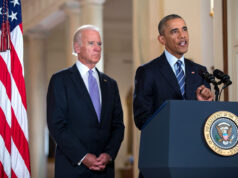Secretary of State John Kerry announced earlier this month that the U.S. would help mediate new Palestinian-Israeli peace talks, after a three year hiatus. Renewed talks will try to reach an agreement on “final-status” issues between the Palestinians and Israel, said Kerry last week. Leaders from both sides are expected to convene in Washington, D.C., as early as Tuesday.
Before next week’s meeting can take place, the details of the discussion must be finalized. Palestinians sources have said Israel must assure the Palestinian Authority that the 1967 border between the West Bank and Israel would be the basis of territorial negotiations. The PA is also requiring Israel’s release of more than 80 Palestinian prisoners who were jailed prior to the 1993 Oslo Accords. While Israel has said some Palestinian prisoners could be released as a “goodwill” gesture, they would refuse any preconditions to the talks themselves. Israeli sources said the PA had dropped the requirement for the 1967 lines, but Palestinian sources said they had not.

Israeli Prime Minister Netanyahu (right) talking to Secretary of State John Kerry. (Photo: Reuters) |
Since assuming office, Kerry has made six visits to the Middle East in an attempt to re-establish dialogue between Jerusalem and Ramallah. Despite having drawn criticism for focusing on settling the decades-old dispute at the expense of other volatile regional concerns, Kerry maintains the U.S. should provide a diplomatic framework for renewed dialogue. The last round of negotiations, hosted by President Obama in September 2010, failed after the PA refused to recognize Israel as a Jewish State. In May of this year, Prime Minister Benjamin Netanyahu “quietly” suspended new settlement construction as a gesture of goodwill.
While the Israeli government and the PA conditionally agree to restart the discussion of peace talks, Hamas, which gained control of Gaza after the 2006 Palestinian elections and the 2007 civil war, denounced even the possibility of negotiations. The group, designated a terrorist organization by the United States and Israel, among others, contends that Prime Minister Abbas has “has no legitimacy” to engage in discussions with Israel, and said it would not recognize any compromise. In fact, neither side can truly claim the popular support of Palestinians as Parliamentary elections have not been held in seven years and the single elected term of Mahmoud Abbas as leader of the Palestinian Authority expired in January 2009.
With the Palestinian leadership split between mutually antagonistic camps, reaching a lasting peace agreement between Hamas and Fatah may prove at least as difficult as finding a modus vivendi between the Palestinians and Israel.





